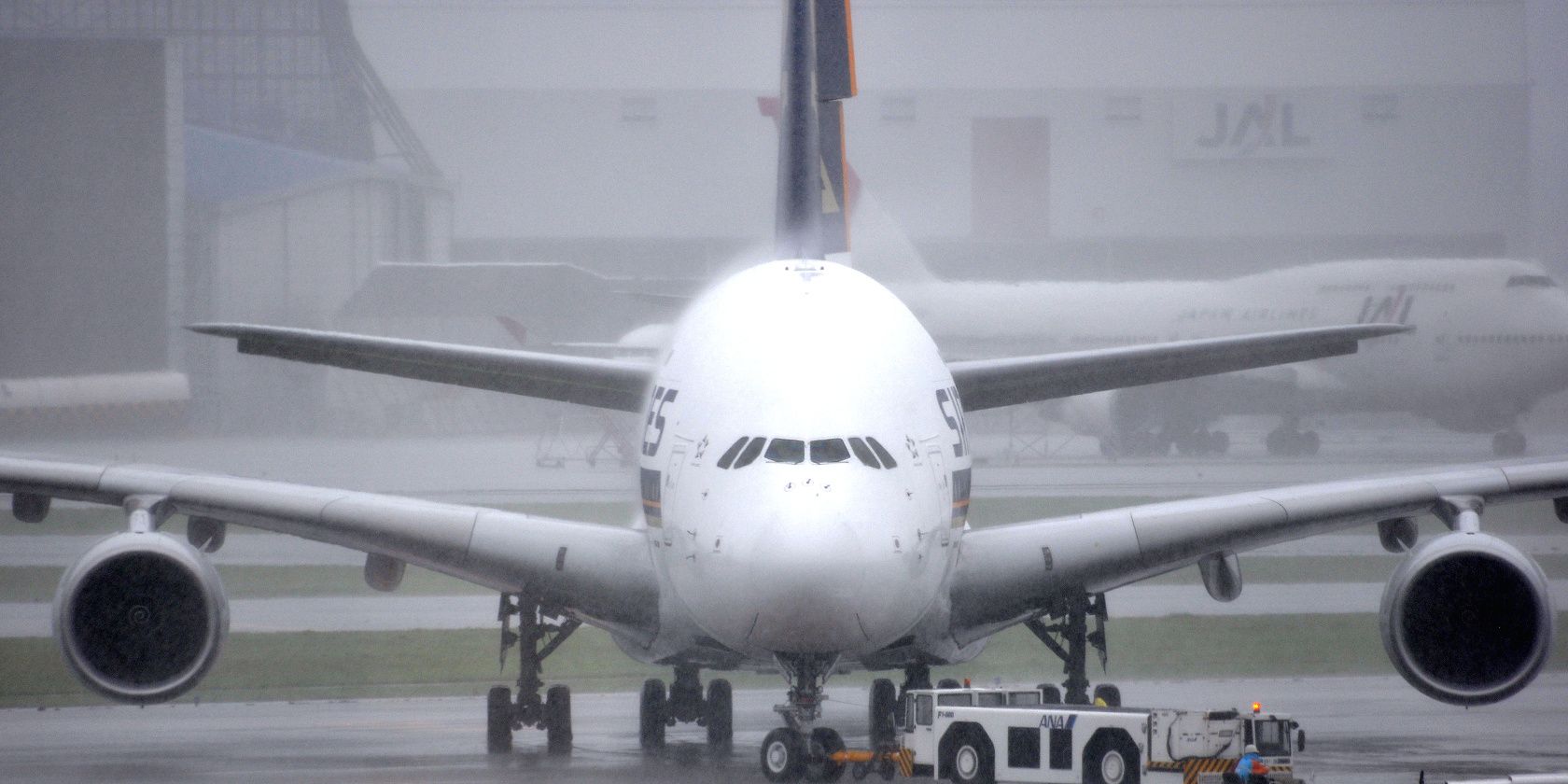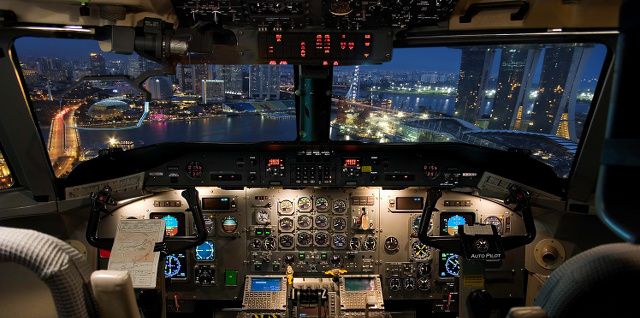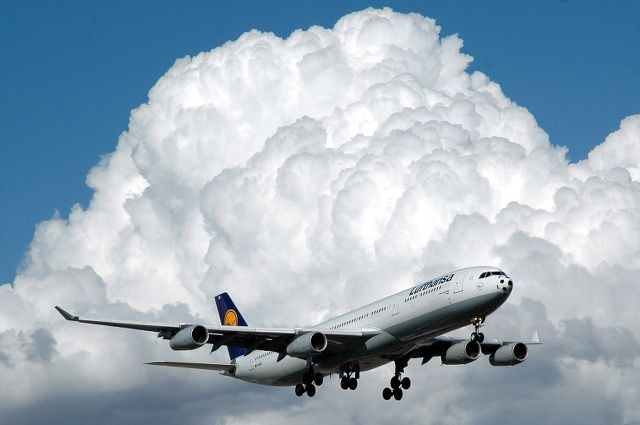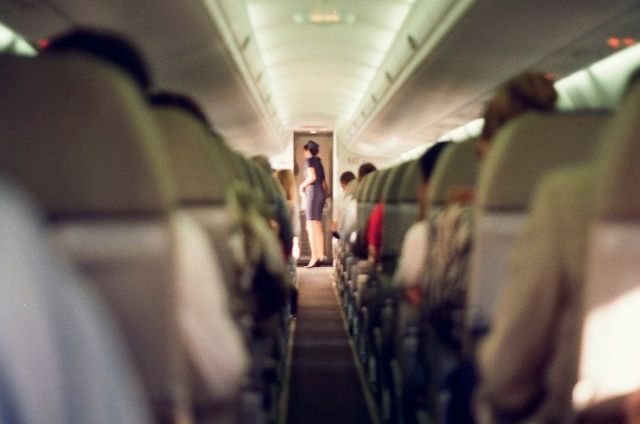You're sitting in a plane, enjoying the view out of your window after finding a great deal for your flight, when the plane starts descending. A few moments later, the flight crew makes an announcement of the descent, and tells everyone to turn off their electronic devices for the remainder of the flight. Why aren't we allowed to use our electronic devices during a flight? What allows us to now use them except for during takeoff and landing? Is there enough evidence to keep a ban on electronic devices during portions of flights?
What Started The Ban?
Image Credit: williamcho
The whole concept of banning electronic devices on flights arose from various studies which showed that personal electronic devices could interfere with the plane's communications and navigation systems. This is because each electronic device emits electromagnetic radiation, and I mean every type of device. It doesn't matter if the device uses electromagnetic waves for communication (such as cell phones) -- it'll still emit radiation. Yes, smartphones have "airplane mode" now, but even that doesn't eliminate radiation. To prove this, you can try apps like Tawkon which claim to be able to measure your phone's radiation.
A favorite study of mine on this topic proved that a personal DVD player could alter the heading that was displayed in the cockpit. A 30 degree difference can make a major difference in the direction the airplane travels. If a device can cause such a disturbance, it's scary to think about what else devices like that could do. A change in displayed heading may just be a navigational issue, but other issues could directly affect your safety.
Of course, this is a very simplified explanation of what could happen. If you're interested, you may also check out a far more detailed and technical explanation.
But I Can Use My Devices Most Of The Time Now!
Technological advancements have been made on planes to shield the aircraft's vitals from electromagnetic radiation, as well as on personal electronic devices to reduce the amount of radiation they emit. As such, most low-powered devices are now allowed to be used during the main portion of the flight. The emphasis on low-power is important, as that's why airlines still advise you to put your smartphones in airplane mode and prohibit other devices such as remote-controlled toys.
Take-off and Landing
Image Credit: caribb
Smartphones and tablets are now much safer and can be used during most of the flight, thanks to the advancements made on both planes and personal electronic devices. However, they're still prohibited during take-offs and landings. Why is this? There are two reasons:
- Statistically speaking, take-offs and landings are the most critical and issue-prone phases of a flight. It's vitally important for your safety to reduce the potential for interference as much as possible during these times so that no issues occur.
- In the case of mobile phones, the FAA isn't the only agency that has restrictions on their use during flight. The FCC also prohibits the use of mobile phones during flights so that it does not cause issues with the carriers' network equipment on the ground. During take-off and landing, you're close enough to the ground to connect to those networks, and they're not built to work with phones going almost 500 miles per hour.
- Unrelated to electromagnetic radiation, any device or object that is out and about in the cabin during those times might suddenly fly around due to turbulences and cause bodily damage to yourself or other passengers. Of course, the bigger the electronic device, the more damage it can cause (or damage it can absorb).
Ultimately, the risks for the first and second points are extremely low, but the current stance of the FAA is to not take a chance. Then again, they're currently receiving new reports and studies over this topic that may change their minds.
Flight Crew Training
Image Credit: Kevin_Morris
To not get any potential fines and to ensure safety, flight crew are trained to make sure that people follow the guidelines set by the airline. If the plane is still on the ground, they have the right to kick people out of the plane if they refuse to cooperate (Alec Baldwin was a prime example), or they can confiscate the device if the plane is in the air.
Final Thoughts
To answer the question in the title, it's "Yes, but extremely unlikely." Honestly, while there may not be quite enough reasons anymore to keep electronic devices turned off during certain parts of a flight, I still think it's the best idea. When I'm in a metal tube in the sky going several hundred miles per hour, I'd prefer to be as safe as possible. Plus, since you can use those electronic devices during most of the flight, it won't hurt to turn them off for approximately a combined hour. You can still get all the work done that you need to do if you're well prepared for travel.
What do you think about the partial bans on electronic devices during flights? Let us know in the comments!
Intro Image Credit: caribb




